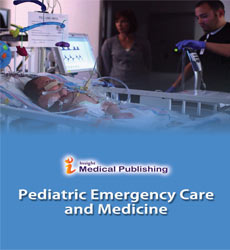Abstract
Neonatal Scrub Typhus: Case Report
Background: The clinical situation of patients with acute fulminant myocarditis can rapidly worsen dramatically, and a delayed diagnosis can lead to poor outcomes.
Objectives: To report a case of acute fulminant myocarditis with an extremely rare clinical course that was successfully treated. Case presentation: A 6-yearold girl was diagnosed with acute fulminant myocarditis during endoscopic cholecystectomy, requiring emergent percutaneous cardiopulmonary support.
Method: Initially, torsion of the gallbladder was suspected on abdominal computed tomography, and she underwent endoscopic abdominal cavity exploration. However, there was no inflammatory change in the abdominal cavity. Complete atrial ventricular block and a wide QRS wave were noted during closure of the trocar hole, and ventricular fibrillation occurred subsequently. Cardiopulmonary resuscitation was immediately initiated but was not effective. Emergent cardiopulmonary support was therefore introduced.
Results: Weaning from percutaneous cardiopulmonary support was performed at 8 days after the critical event. There was no cardiac dysfunction before hospital discharge. The patient has not experienced any critical symptoms at 3 years after recovery.
Conclusion: Abdominal symptoms in children might be related with acute fulminant myocarditis. If a child presents with any abdominal symptoms, special attention should be provided and the possibility of acute fulminant myocarditis should be considered.
Author(s):
Sunil Gothwal, Sneha Singh Dhruw, Ramesh Choudhry and Sitaraman S
Abstract | Full-Text | PDF
Share this

Google scholar citation report
Citations : 50
Abstracted/Indexed in
- Google Scholar
- International Committee of Medical Journal Editors (ICMJE)
- Secret Search Engine Labs
Open Access Journals
- Aquaculture & Veterinary Science
- Chemistry & Chemical Sciences
- Clinical Sciences
- Engineering
- General Science
- Genetics & Molecular Biology
- Health Care & Nursing
- Immunology & Microbiology
- Materials Science
- Mathematics & Physics
- Medical Sciences
- Neurology & Psychiatry
- Oncology & Cancer Science
- Pharmaceutical Sciences

